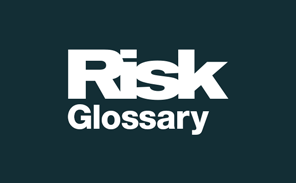XVA management: advanced level
View AgendaKey reasons to attend
- Deep dive into wrong-way risk and the foreign exchange devaluation approach
- Explore exposure modelling and valuation adjustments calculations
- Strengthen your understanding of XVAs
Customised training
Does your team require a tailored learning solution?
We partner with leading tutors and Risk.net’s editorial team to design learning solutions that drive real impact for your team, every step of the way.
About the course
Delve into the world of XVAs with us by exploring various XVAs on a deeper level with curated session for collateral, credit, margin, and capital valuation adjustments and more. During this course, participants will go beyond the basics of XVAs by analysing the choice of models for each asset class and gain tools for heading XVAs during market volatility.
A subject matter expert will guide participants in fostering a stronger understanding of wrong-way risk, including stochastic credit models and approaches to FX devaluation, credit products and jump diffusion.
Participants will examine XVA calculations through an exposure simulation and discuss algorithmic differentiation.
This virtual learning experience is aimed towards XVA professionals who have taken our XVA management masterclass or have a strong foundational knowledge of XVAs.
To start learning about XVAs, join our XVA management: a comprehensive overview programme.
What participants say:
”A must-attend for anyone serious about advancing their knowledge of XVA concepts. The real-world insights and interactive format made complex topics easy to grasp and apply.” - Senior risk professional
”The best training I’ve attended on XVA. Relevant and full of practical solutions I could implement immediately.” - Quantitative analyst
”This course offered a practical look at XVA beyond the theory. It gave me a deeper understanding of pricing adjustments and their strategic impact, which I will use in my day-to-day work.” - Derivatives trader
Pricing options:
- Early-bird rate: save up to $800 per person by booking in advance*
- 3-for-2 rate: save over $2,000 by booking a group of three attendees*
- Subscriber reward: save 30% off the standard rate if you are a Risk.net subscriber*
- Season tickets: cost-effective option for groups of 10 or more. Learn more
*T&Cs apply
Learning objectives
- Hedge XVAs during market volatility
- Integrate the proxy spread approach and outlier removal methods
- Build a strong framework for credit valuation adjustment (CVA), debit valuation adjustment and funding valuation adjustment
- Select appropriate models for each asset class
- Approach XVA calculations through exposure simulation
- Comply with regulatory requirements related to the standardised approach to CVA
Who should attend
Relevant departments may include, but are not limited to:
- XVA risk
- XVA analyst
- XVA desk
- XVA trading
- Counterparty credit risk
- Quant modelling
- Treasury
Tutors

Jon Gregory Risk Learning Faculty
Dr Jon Gregory is an independent expert specialising in counterparty risk and XVA related projects. He has worked on many aspects of credit risk in his career, being previously with Barclays Capital, BNP Paribas and Citigroup. He is a senior advisor for Solum Financial Derivatives Advisory and a faculty member for the Certificate of Quantitative Finance (CQF).
In addition to publishing papers on the pricing of credit risk and related topics, Jon is author of the book Counterparty Credit Risk The New Challenge for the Global Financial Markets published by Wiley Finance in December 2009 (now in its third edition) and Central Counterparties: Mandatory Central Clearing and Bilateral Margin Requirements for OTC Derivatives.
Jon has a PhD from Cambridge University.
Expand your learning
The premier meeting place for the risk community. Providing clarity and guidance on the fast-changing regulatory landscape of capital, credit and market risk, liquidity and derivates use.
Risk Journals deliver academically rigorous, practitioner-focused content and resources for the rapidly evolving discipline of financial risk management.
Risk Books are authored by leading professionals and academics. With over 150 books spanning 1,000s of chapters, our publications team is committed to connecting readers with these world class experts.
Regularly updated by our team analysts, journalists and producers, our glossary demystifies the terminology and acronyms used in risk management, risk transfer, policy, technology and innovation.



